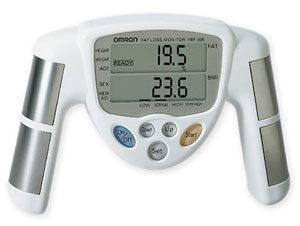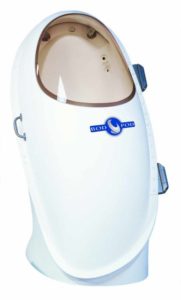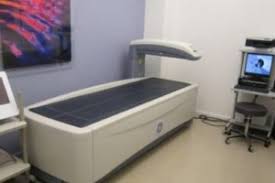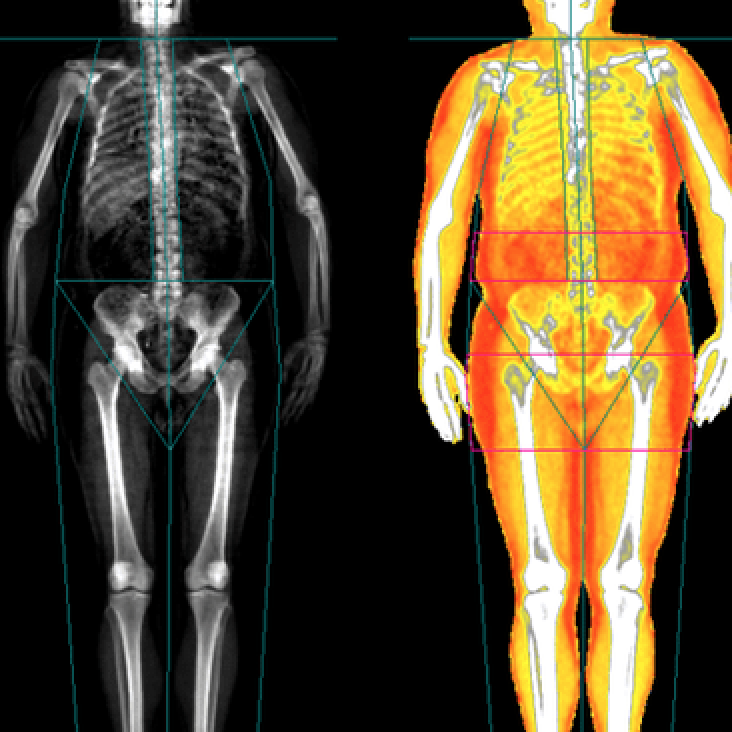Almost every home has a bathroom scale. Some get used frequently, others occasionally, and some simply provide a happy home for dust bunnies!
Scales are great for providing immediate feedback on WEIGHT loss or gain. The problem is, they don’t tell you anything about body composition (fat and lean mass). And those are the metrics that matter.
Okay, hold on. I’m not telling you to chuck your scale out the window. I just want you to think about body composition.
THE 3 MOST COMMON FORMS OF TESTING BODY COMPOSITION:
 1. Bioelectrical Impedance:
1. Bioelectrical Impedance:
How it works: you stand on a scale or hold a device. Tiny electrical impulses are sent through your body. The device measures how quickly those impulses return.
The Pros: they’re relatively inexpensive. Many bathroom weight scales now offer bio-impedance as one of the features, so you can do it at home - no appointment necessary.
The Cons: They’re much less accurate than other forms of testing. Dehydration, eating a meal, or taking a reading directly after exercising can skew the results.
 2. Air-Displacement Plethysmography:
2. Air-Displacement Plethysmography:
How it works: you sit in an egg-shaped chamber for several minutes while the pressure inside is altered (Bod Pod is the most recognized brand). The technician simply measures the relationship between the volume and pressure of air to measure body composition.
The Pros: It’s extremely easy and comfortable. And it’s much more accurate than bio-impedance.
The Cons: You have to wear skin-tight clothing or a swimsuit for the most accurate measurement. You’ll have to schedule an appointment and pay roughly $45 for a scan.
 3. DEXA (Dual-Energy X-Ray Absorptiometry):
3. DEXA (Dual-Energy X-Ray Absorptiometry):
How it works: you lie down on a table. Your body is exposed to X-ray beams of differing intensities. The technician is then able to measure body composition AND bone mineral density.
The Pros: It’s extremely easy and comfortable. The machine scans body parts individually, so you’ll get a break down of the body composition in each limb and in your torso. You also get a very accurate measure of bone density. Additionally, a DEXA scan will tell you how much visceral fat you have.
The Cons: You have to schedule an appointment and pay anywhere between $45-$90 for a scan. (BodySpec might have the best price in Austin - it’s only $45/scan!)
WHY GET SCANNED?
- If you’re trying to lose weight, you need to make sure you’re LOSING FAT and NOT MUSCLE!
- As we age, bone density is a metric we need to know. And DEXA scans are an incredibly easy and inexpensive way to stay on top of that number.
- Visceral fat has significant implications of risk for certain diseases. It’s a number you should pay close attention to. DEXA scans are an easy way to get that information.
And remember: body composition is just one metric. Strength, work capacity, having fun while training - all of those things matter, too!


